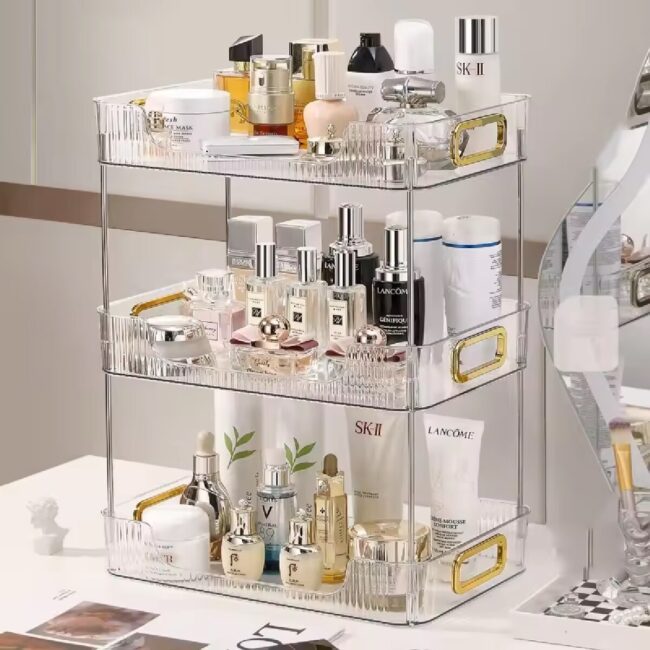expired perfumes
-
How To Store Perfume Bottles
Properly storing perfume bottles is pretty essential if you want to enjoy your favourite scents for as long as possible. Perfume isn’t just another beauty product; every bottle is a blend of chemistry and artistry that deserves careful attention. I’m always surprised by how many people stash their perfumes on sunny windowsills or in steamy bathrooms without realising this can ruin them. Here’s what I’ve learned about keeping those eye-catching bottles and fragrances in top shape.
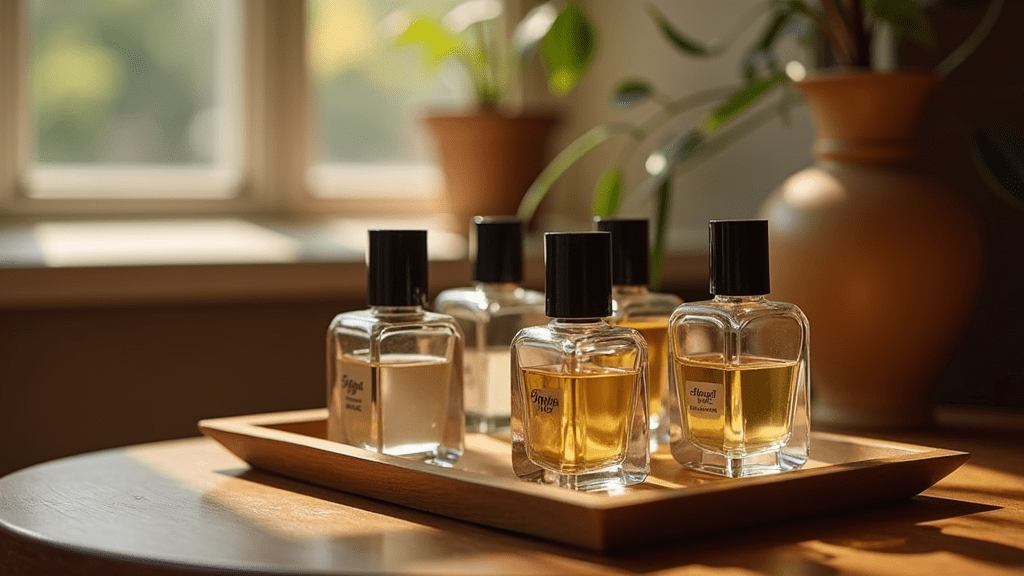
This article is part of a fragrance blog I built myself — I’ll explain how at the end if you’re curious.
Why Perfume Storage Matters
Storing perfume bottles correctly is crucial because the ingredients in perfumes are sensitive to air, light, and temperature fluctuations. Perfume isn’t like a bottle of wine that gets better with age. It breaks down more quickly when exposed to excessive light, heat, or air. I’ve seen favourite perfumes lose their beautiful scent or turn strange colours just from sitting out on a dresser for a few months. If you’re buying fragrances you love (or spending big bucks on fancy bottles), it makes sense to protect your investment so they last longer and still smell great.
When perfume isn’t stored right, a few things can happen:
- Smell fades or changes: The notes can break down, leaving a fragrance that smells musty, sour, or entirely different from its original scent.
- Colour shifts: Oxygen and light can make the juice turn yellow or brown, even if it’s supposed to be clear.
- Bottle buildup: If lids aren’t on tight, or if perfumes get too warm, there can be dried residue or leaking that makes the whole bottle sticky or gross.
If you love the design and artistry that go into perfume bottles, taking care of them not only maintains the scent but also the look. Over time, I’ve come to appreciate how much a well-preserved collection can add to any beautiful space.
Best Places to Store Perfume Bottles
After trying out various setups at home, I’ve found a few spots that help keep perfume bottles in optimal condition. Here are my top suggestions:
- Bedroom drawer: Drawers block out light, help keep a consistent temperature, and protect against bathroom steam. I keep a few favourites wrapped in a soft scarf in my top drawer.
- Bedroom closet: If you have shelf space, tucking perfume bottles between shoes or behind outfits helps keep them out of sunlight and heat.
- Dedicated cabinet: I’ve seen serious collectors use glass front cabinets or mini display cases with doors. These look attractive and still provide reasonable protection if you position the cabinet away from any windows or vents.
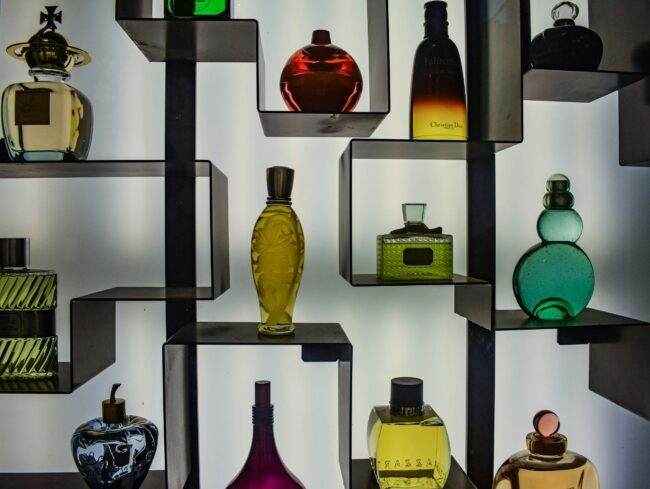
Any spot that is cool, dark, and dry will help perfume last longer. Avoid placing bottles near a window, on a radiator, or in a bathroom, where temperatures and humidity fluctuate throughout the day. In small apartments, even a box under the bed can work if that’s your only cool, dark space.
Related Article: Alcohol-Free Perfume For Women
Main Enemies of Perfume (and How to Fight Them)
Perfume’s biggest enemies are light, heat, and air. Here’s how they work, and how to keep them from wrecking your signature scents:
- Light: Sunlight, especially direct sunlight, can break down perfume molecules fast. I keep my expensive bottles far away from windows and never leave them out on a vanity if the sun hits that spot during the day.
- Heat: Perfume likes a steady temperature. Fluctuating or high heat (such as in a bathroom or near a heater) accelerates the breakdown of a fragrance. I’m careful to avoid storing my perfumes anywhere that gets warm; even a kitchen shelf near the stove is risky.
- Air: Oxygen causes perfumes to oxidise. That means the perfume can start smelling flat or strange. Always pop the lid or cap back on tightly and never leave bottles uncapped for an extended period.
Some people store perfumes in their fridge, which protects against light and maintains a steady temperature, but unless you have a dedicated beauty fridge, I find this approach tricky. Perfumes can absorb food odours, and the refrigerator can get too humid. If you live in a very hot climate, however, a fridge might be preferable to an overheated room.
Tips for Long-Term Perfume Storage
If you collect perfume or want your bottles to last for years, long-term storage is a worthwhile consideration. Here’s a routine that’s worked for other fragrance lovers and me:
- Keep bottles in original boxes. Packaging isn’t just for aesthetics; it protects against light and temperature fluctuations. If you’re not displaying the bottle, pop it back in the box after each use.
- Avoid opening too often. The more you open a bottle, the more air gets in. Only remove the cap or spray when you plan to use it.
- Use a decant for daily wear. If you have a perfume you wear every day, transfer some to a small travel spray or decant bottle. That way, the main bottle stays sealed longer and is exposed to air less often.
- Stand bottles upright. Lying bottles on their side can cause perfume to seep into the cap or leak, especially with splash or dab-on bottles.
Affiliate DisclosureWhen you click on links to various merchants on this site and make a purchase, this can result in this site earning a commission. Affiliate programs and affiliations include, but are not limited to, the eBay partner network.Avoiding Common Storage Mistakes
I’ve seen some perfume disasters from these classic mistakes, so here’s what to avoid:
- Leaving bottles on a window ledge where they get direct sunlight
- Storing in a bathroom, where heat and moisture creep in
- Using bottles as decor right next to a heating vent
- Forgetting to close the bottle tightly, which lets air inside
All these slip-ups accelerate the ageing process for perfume and can completely ruin a once-beautiful fragrance.
Handling Vintage and Rare Perfumes
Some bottles are truly collectable, or maybe you inherit a rare bottle from a relative. If you’re holding onto vintage or rare perfumes, proper storage is even more crucial. I always recommend these extra steps:
- Store out of the box, but inside a fabric bag or pouch to protect the bottle’s label and finish while still blocking out light.
- Label bottles with the date you got them, especially if you start a collection. That way, you can keep track of the age in case you want to sell or trade it later.
- Avoid shaking or disturbing old bottles too much. Fragile corks and caps can become loose over time, allowing air to enter the bottle.
I’ve found it super rewarding to store older and rarer bottles carefully—not just for the scent itself, but because they often increase in value when kept in good shape. For really special bottles, you might even want to research their history or keep a little journal with information about each one. This small habit adds depth and value to your collection.
Related Article: Vintage Perfume
Travel and Perfume Storage On the Go
Taking perfume with you can be a challenge, as travel bottles are often jostled, subjected to pressure, and exposed to sudden temperature fluctuations. Here’s how I keep my favourite scent safe while travelling:
- Decant into a travel spray. I never pack full-size bottles; instead, I transfer a little into a 5- 10ml atomiser or spray bottle.
- Wrap in soft cloth or bubble wrap. Padding reduces the risk of glass in your bag or suitcase shattering.
- Pack in a zipper bag. If the bottle leaks, the rest of my bag stays safe.
- Never leave perfume in a hot car. Summer heat can cause perfume to spoil quickly if left inside a parked car.
Keeping your everyday scent fresh while travelling is possible with just a little prep. I also suggest bringing a cotton pad or two to wipe down bottles if they get sticky, and noting the expiration or opening date to avoid any surprises later on.
Related Article: Duty Free Perfume
Practical FAQ on Perfume Bottle Storage
Here are some questions I frequently hear, along with simple, practical answers from my own experience.
Question: Is it okay to keep perfume in the bathroom?
Answer: Bathrooms tend to be warm and humid, which is tough on perfume. A dry bedroom drawer or closet is ideal for maintaining a long-lasting scent.Question: My perfume turned yellow. Can I still use it?
Answer: Colour changes mean the perfume has started to oxidise or break down. Sometimes it’s still safe, but if it smells off or different, it’s usually best to toss and replace.Question: Should I refrigerate perfume bottles?
Answer: For most people, regular room temperature in a dark place works great. If you live in a very hot area, consider investing in a mini fridge specifically for your beauty products—just be sure to keep perfume away from food.Question: What’s the best way to display perfume bottles?
Answer: If you love seeing your bottles, set up a shelf or display case away from windows and heat sources. It’s also smart to rotate the bottles you display, keeping the rest in their boxes or a dark drawer.Question: Do rollerballs and sprays need the same care?
Answer: All perfume formats benefit from cool, dark storage. Sprays are usually better sealed than dab bottles, but I still keep both out of direct light and heat.How This Blog Was Created
Fragrances With Love started as a personal hobby — sharing my love of perfume, affordable finds, and fragrance trends. I didn’t start with a background in websites, marketing, or blogging.
This site was built by writing about something I genuinely enjoy. I use one platform to host my website, write my blog posts, and learn how to monetise content step by step, all in one place.
If you enjoy writing and have ever thought about starting a blog around something you love, you can see the platform I used to create this site below.
How I Created Fragrances With Love
Everyday Care for Perfume Bottles
Keeping perfume looking and smelling fresh doesn’t require much effort. Here are the main habits I always stick to:
- Always recap bottles right after use
- Dust bottles and boxes from time to time, especially if stored in the open
- Keep a small group of seasonal favourites accessible, with the rest tucked away
- Do a sniff check. If something smells off or different, replace it before it disrupts your daily routine.
Paying a little attention to how you store perfume bottles makes a huge difference. Not only does it preserve your favourite scents, but it also protects the appearance of those beautiful bottles and packaging. With a few tweaks, you’ll notice your fragrances hold up much longer, and your collection will always look and smell amazing.
Related Article: Expired Perfume
Did You Know?
We sell FM perfumes, which are a more affordable alternative to high-end designer fragrances. With FM, you can enjoy luxurious scents without the hefty price tag, meaning it’s easy to replace your favourite bottle whenever you need to, without breaking the bank.
Please take a look at our online shop here.
✨ Love Your Perfume? Keep It Beautiful for Longer ✨
Want to make your favourite scents last even longer?
Join our newsletter and get expert fragrance tips straight to your inbox—including how to store your perfume bottles the right way, avoid common mistakes, and protect your collection like a pro.✅ Practical perfume advice
✅ Seasonal scent tips
✅ Exclusive deals and fragrance finds📬 Sign up now and let your perfumes smell just as stunning as the day you bought them.
Join the Fragrance Lovers List 💌
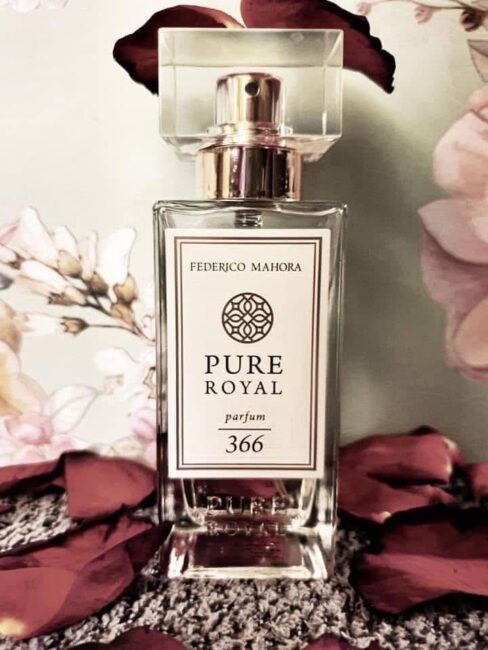
-
Expired Perfume
Most of you already know this: perfumes don’t last forever. You might wonder if the expired perfume has a date printed somewhere. Despite their luxurious image and often hefty price tags, these fragrant concoctions have a finite shelf life.
It’s not always as straightforward as a stamped date, but some indicators can help us understand when our favourite scents have reached their twilight.
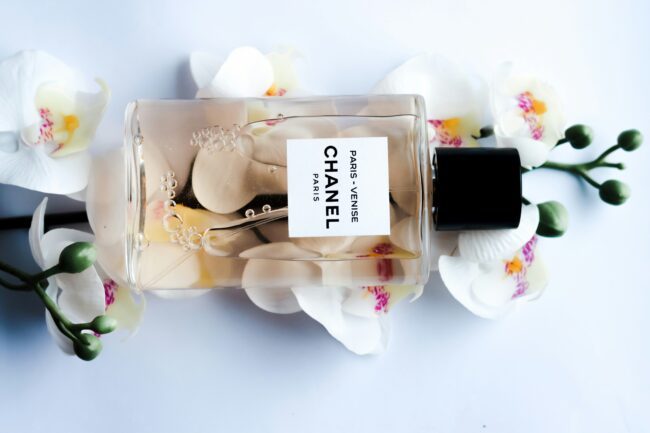
This article is part of a fragrance blog I built myself — I’ll explain how at the end if you’re curious.
Deciphering Perfume Expiry: Understanding the Signs
We’re not just talking about a decline in aroma but also about the complex chemistry that makes up a perfume. Various factors contribute to a perfume’s longevity, including the quality of its ingredients, the type of fragrance (Eau de Toilette, Eau de Parfum, etc.), and the conditions under which it’s stored.
An Eau de Toilette might not last as long as an Eau de Parfum due to the difference in essential oil concentration.
If you want to keep your scents in tip-top condition for as long as possible, there are a few signs you should look for. We identify the telltale signs that indicate your perfume may have lost its initial charm and what these changes could mean. This understanding is crucial; it helps you get the most out of your perfumes and ensures you wear only fragrances at their best.
Affiliate DisclosureThis post contains affiliate links, which means I may earn a small commission if you click on a link and make a purchase at no additional cost. I only recommend products or services I believe in; all opinions are mine. Thank you for supporting this website..In my opinion, having this knowledge empowers you as a connoisseur of scent. It ensures that what you apply is pleasing to the senses and safe on your skin. So, remember, recognising the lifespan of your perfume is an essential skill in maintaining the integrity of your fragrance collection.
Related article: Perfume Longevity
Transformations and Telltales: Recognising Expired Perfume
Over time, the scent you cherish may undergo some alterations, so I’m here to help you spot when a scent has seen better days, often long before you take the last spritz.
Have you ever wondered if your perfume can change colour? Guess what? They can. When perfume expires, the once vivid, clear liquid may take on a darker hue or become cloudy. Exposure to light and heat can speed up this process, causing the chemical reaction that leads to colour changes.
Now, does expired perfume feel different on the skin? Sometimes, it might. If the alcohol content has evaporated, this could affect how the perfume disperses and how long it lingers on your skin, perhaps leaving a sticky or oily residue. However, this isn’t a common telltale sign, and the changes are often more noticeable in its scent than its feel.
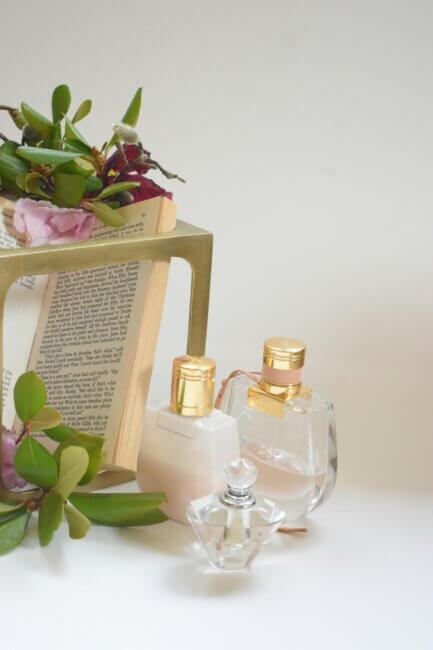
Speaking of scent, that’s the most obvious giveaway. Perfumes are complex concoctions with top, middle, and base notes. When they expire, their chemical structure changes, sometimes breaking the delicate balance and altering the original fragrance profile. The scent could become sour, musty, or lack its former complexity and potency.
Giving your perfume a ‘nose test’ is the best way to determine if it’s still good to wear. Trust your sense of smell; it’s the most reliable tool you have in this case.
You might be thinking, ‘Does perfume have an expiry date?’ While not all perfume bottles have a printed expiration date, most have a batch code you can use to find out when they were manufactured. Generally, unopened bottles can last 3 to 5 years, but once opened, they’re best used within 1 to 2 years for optimal scent quality.
What should we do with an expired perfume? Well, there are two ways to react to this. You can throw it away, or, if you’re interested in sustainability, there are inventive ways to repurpose your beloved fragrance that we’ll delve into in the next section.
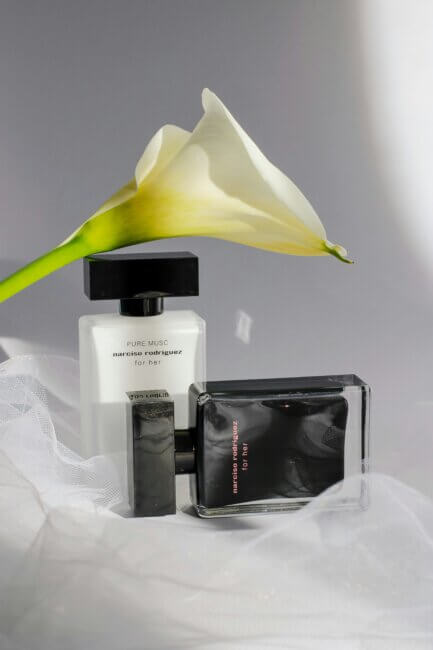
Navigating the Scented Shelf-Life: Tips and Best Practices
Let’s share some wisdom on keeping your fragrances smelling great for as long as possible. It’s not just about hoarding your perfume stash; it’s about clever storage and handling.
You’ve probably noticed that heat, light, and humidity can be a perfume’s worst enemies. If you want your scents to last, keep them in a cool, dark place—a dresser drawer or a closet shelf is ideal. Just steer clear of the bathroom, where the humidity swings can wreak havoc on your fragrance’s composition.
Now, I’m not saying you need to go out and buy a fancy storage unit, but do consider the original packaging. Many perfumes come in a box to protect them from sunlight and temperature changes, so think twice before binning them.
Don’t worry too much about having to use your perfume quickly. While many don’t have a strict expiration date, paying attention to the scent is important. You will get a good couple of years out of your favourite fragrance, but if something smells off, it’s generally a sign to say goodbye.
If you’re uncertain about discarding a slightly altered perfume, there are options worth exploring. You might consider repurposing it for other uses, such as scenting linens or refreshing a room. However, before repurposing, it is crucial to ensure the perfume does not cause skin irritation.
When selecting perfumes with longevity in mind, choose something that resonates with you. Opt for Eau de parfum or extrait de parfum, as higher concentrations of fragrance oils often result in a longer-lasting product.
Saying Goodbye with Grace: The Etiquette of Expired Perfume Disposal
Once the lingering scent from the final spritz dissipates, and it’s time to part with your beloved bottle, it should be done responsibly. Don’t just toss it in the rubbish; consider the environmental impact. Instead, consider eco-friendly disposal methods. Many communities offer hazardous waste programs that accept perfumes. Alternatively, look for recycling programs that handle cosmetic packaging.
Giving away or selling an expired perfume might seem like a kind idea, but it’s not always ethical or appreciated. Fragrances change over time, and what’s left in your bottle might not be the delightful scent it once was. It could even cause skin irritation for someone else. So, be mindful about passing on your once-cherished scents to others.
If you’re eager to recycle the bottle, rinse out any remaining perfume. Glass bottles can often be recycled with your regular glass recycling. For plastic components, check your local recycling guidelines. Remember, the pump and nozzle might not be recyclable due to their metal springs, so separate these parts and dispose of them according to local regulations.
Parting with a perfume you’ve grown fond of can be a sentimental moment, but it opens the door for new scents to enter your life. It’s a chance to explore fresh fragrances that will become the backdrop for new memories. Be sure to recycle or dispose of your expired perfumes conscientiously, knowing it’s the final step in the life cycle of every exquisite scent.
Related Article: Signature Fragrances
How This Blog Was Created
Fragrances With Love started as a personal hobby — sharing my love of perfume, affordable finds, and fragrance trends. I didn’t start with a background in websites, marketing, or blogging.
This site was built by writing about something I genuinely enjoy. I use one platform to host my website, write my blog posts, and learn how to monetise content step by step, all in one place.
If you enjoy writing and have ever thought about starting a blog around something you love, you can see the platform I used to create this site below.
How I Created Fragrances With Love
Conclusion
Understanding the lifespan of perfumes is essential for ensuring both safety and satisfaction. While there may not always be an expiration date stamped on the bottle, recognising the signs of expired perfume is crucial. From changes in scent and appearance to potential risks of skin irritation, being aware of these indicators empowers consumers to make informed decisions about their fragrance choices.
Whether repurposing expired perfumes for alternative uses or investing in fresh bottles for optimal fragrance enjoyment, heeding perfume expiry is a step towards maintaining a delightful olfactory experience. By staying vigilant and mindful of the signs, we can navigate the world of perfume with confidence and appreciation for its fleeting beauty.
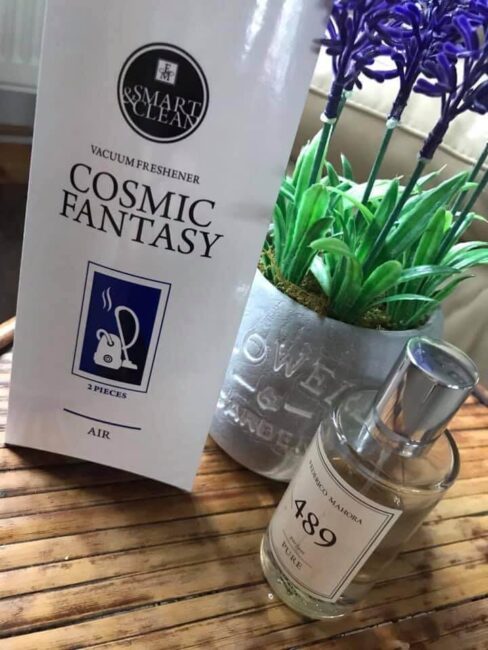
FM 489, inspired by Thierry Mugler’s Alien. 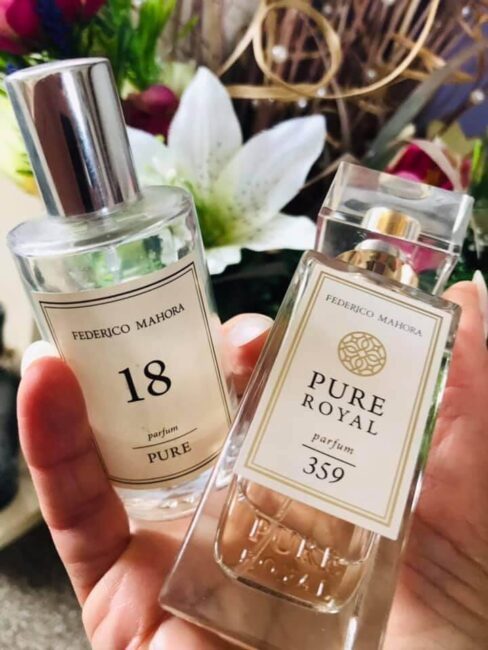
FM 18 and FM 359 were inspired by Chanel‘s Coco Mademoiselle and Thierry Mugler’s Alien Essence Absolute. 
FM 499- inspired by DKNY-Delicious Delights Dreamsicle Photos: ©Fragranceswithlove.com
Related article: FM perfume 359 review
Don’t miss out on the latest updates, exclusive offers, and insider tips on fragrance. Sign up for our newsletter today and immerse yourself in captivating scents.
